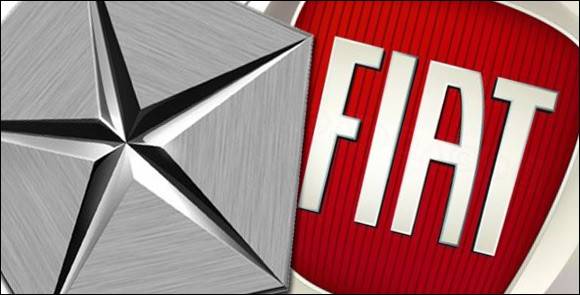Council for the US and Italy. CEO of Fiat-Chrysler is the New Italian Chairman
At its annual meeting in Venice this weekend, Sergio Marchionne accepted the nomination to become the new Italian chairman for the the Council for the US and Italy, the binational non-profit organization founded in Venice in 1983, which brings together men and women from both countries in banking, business and diplomacy.
The theme of this year’s twentieth annual workshop is the global economy and the possible elements which can or already are contributing to recovery. In his address to the Council, the CEO of the Fiat Group and Chrysler Group listed the problems facing the auto industries in both the US and Europe. “We carmakers have suffered from the crisis and the credit squeeze more than most so we have had to rethink and in effect reshape our industry. The old operating model failed; worldwide the two largest carmakers failed. Whatever we did before didn’t work, so it was back to the drawing board.”
This month the union between Fiat and Chrysler was confirmed, and it is “a marriage made in heaven—we have already put together an outstanding selection of leaders.”
Will it work? “The American market is ready for small cars—it has no option but to downsize,” he said.
Marchionne had warm praise for the US approach under President Obama. The financial
markets, labor leaders and management are all working in harness to rebuild the structure of the industry, he said. “I can bear witness that a profound sense of responsibility is being shown by every component of this concerted effort.”
Last year Fiat won industry-wide recognition for its cars having the lowest emissions of any made by the big automakers. On the other hand, although natural gas is less polluting and relatively inexpensive by comparison with petroleum, natural gas distribution networks and automobile safety technologies have lagged behind, he said.
The US and European goals are the same, but by contrast with the US, Europe lacks “a common vision—we are all looking at the trees and not the forest.” An overload of costly European regulations are “a huge burden,” he said, uneconomical and impractical. “The new approach is green, but that is only part of it, and we must be careful what we call ‘green.’” Some so-called “green things” simply don’t make sense, he added.
Marchionne takes over from Marco Tronchetti Provera, Council President since 1994, who becomes Honorary Chairman of the Italian branch. Tronchetti Provera’s counterpart in the US is Samuel Palmisano, chairman and CEO of IBM. The American branch of the Council is headed by David Heleniak, Vice Chairman of Morgan Stanley.
The Council promotes US-Italian economic relations within the broader context of US-European ties, and its members are primarily business leaders with a personal and/or corporate interest in the other country. Serving on the original board of directors of the Council were, among others, Giovanni Agnelli and David Rockefeller.
Marchionne, born in Chieti in 1952, began his professional career in Canada and has dual Canadian-Italian citizenship. He worked in Canada until 1994, then occupied increasingly important positions in the Algroup, headquartered in Zurich, where he became the corporation’s CEO. When the Lonza group split with Algroup, Marchionne remained with Lonza as CEO afer 2000 and then, in 2002, its Chairman. He became CEO of SGS Group in Geneva in February 2002 and is still chairman of that company, a leader in services of inspection, verification, testing and certification.
He became CEO of the Fiat Group Automobiles in February 2005, and, in an extraordinary display of skill and energy, successfully rebuilt and relaunched the troubled Italian automobile group.
To Council sessions and its elaborate dinners Marchionne always wore his trademark sweater. Just in from Hongkong, he was visibly fatigued but affable, bright and totally relaxed, an original whose model, if he has one, may be Bill Gates. His English has only the slightest accent, somewhere between Canadian and Italian, but he is eloquent. About seventy participants from both sides of the Atlantic attended the sessions, which concluded Saturday.





































i-Italy
Facebook
Google+
This work may not be reproduced, in whole or in part, without prior written permission.
Questo lavoro non può essere riprodotto, in tutto o in parte, senza permesso scritto.